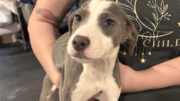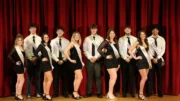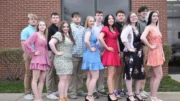PHILADELPHIA (AP) – Philadelphia has a long history as a center of politics, going back to the 18th century when the Founding Fathers met here to sign the Declaration of Independence and write the U.S. Constitution. Even presidential conventions are nothing new: The 2016 Democratic National Convention is the city’s 12th since the Whig Party met here in 1848.
Visitors can sample Philly’s political history any time at landmarks like Independence Hall and the Liberty Bell (still cracked!). But special exhibitions themed on conventions and campaigns are also on view this summer, including shows at the Heritage Center of the Union League, Pennsylvania Academy of the Fine Arts and National Constitution Center.
And while you’re at the Constitution Center, don’t miss Signers’ Hall, a recreation of the room where the Constitution was written. It’s crowded with 42 life-size bronze statues of the Founding Fathers. You can shake their hands, whisper in their ears or pose for selfies.
There’s also something to be said for simply wandering the streets of Historic Philadelphia , the neighborhood around Independence Hall. You’ll find pennies on Ben Franklin’s grave, the story of a president’s runaway slave, and the house where George and Martha Washington danced the night away.
Convention city
“Sweep the Country,” an exhibition at the Heritage Center of the Union League, surveys Philadelphia’s history as a convention host through stories, images, and objects like an 1858 campaign handkerchief and a 1936 board game.
The Pennsylvania Academy of the Fine Arts hosts “Happiness, Liberty, Life? American Art and Politics,” with 100 works exploring themes like the cult of presidential personality and art as protest. Artists include Gilbert Stuart, Andrew Wyeth and Kara Walker.
At the National Constitution Center’s interactive “Headed to the White House” exhibition, you can practice your presidential handshake, listen to speeches and contemplate artifacts like mac-and-cheese with “Democrats in 2008” printed on the box. The Constitution Center is also the hub for “PoliticalFest,” a festival of exhibits, games and theater celebrating American history, and running from July 22-27.
Donkeys have symbolized the Democratic Party since Andrew Jackson’s enemies called him a jackass in 1828. Look for 57 fiberglass donkeys on the streets of Philadelphia through the end of July.
Presidential footsteps
Independence Hall is an essential stop for history buffs, but you can only go inside on a National Park Service tour; free tickets are distributed each morning at the visitor center, or reserve online for $1.50.
But even outside the building, you’ll be standing in impressive footsteps. Plaques show where Abraham Lincoln and John F. Kennedy delivered speeches. Other visitors have included Ronald Reagan, George W. Bush, Jimmy Carter, George H. W. Bush, Bill Clinton and Gerald Ford.
Elsewhere, Philadelphia has hosted numerous presidents. Every president from Theodore Roosevelt through Ronald Reagan stayed at the Bellevue Hotel, now a Hyatt, at 200 S. Broad St. The National Constitution Center’s famous visitors have included Barack Obama, Hillary Clinton, Bill Clinton and George H.W. Bush. And Donald Trump graduated from the University of Pennsylvania’s Wharton School of Business.
Hidden stories
You don’t have to walk far from Independence Hall to find fascinating but less familiar stories. An open-air site called the President’s House on Market Street, marked by brick walls and white columns, reveals the foundation of the official presidential residence where Washington and his successor, John Adams, lived. Washington’s household included nine slaves, two of whom ran away. One escapee, Oney Judge, fled with the help of Philadelphia’s free black community and lived out her life in New Hampshire.
At Christ Church Burial Ground on Fifth Street, Franklin’s grave is strewn with pennies in homage to his famous saying, “A penny saved is a penny earned.” Christ Church also offers a “Founding Mothers” tour, celebrating colonial heroines buried there, July 22-30, every half-hour, 11 a.m.-3:30 p.m., $7, and Fridays in July, 5:30 p.m., $10.
One of those “Founding Mothers” is Elizabeth Powel, who hosted salons, dinners, and other social gatherings for colonial-era movers and shakers in her home at 244 S. Third St., now a historic site called the Powel House . Powel’s husband was Philadelphia’s mayor; they were the power couple of their day, and she helped persuade Washington to serve a second term. Artifacts include a letter describing a night of dancing at a 20th wedding anniversary party for George and Martha Washington in 1779, and framed paper silhouettes that guests made of each other – including one of Washington.
At the Betsy Ross House , 239 Arch St., a costumed re-enactor tells her story: Ross, an upholsterer by trade, was persuaded by Washington and others to sew an American flag. But she had to work in secret because British colonial officials would have considered that treason.
A block away from the Ross House, another story unfolds: A modern-day seamstress named Betsy Cook channels the spirit of her famous namesake at the 323 Arch Street Fashion Collective, selling handmade clothing like a T-shirt that says “Hilladelphia 2016.” Introducing herself to visitors, Cook says simply: “I sew. My name is Betsy.”








































